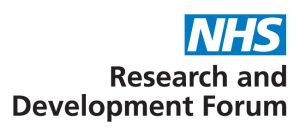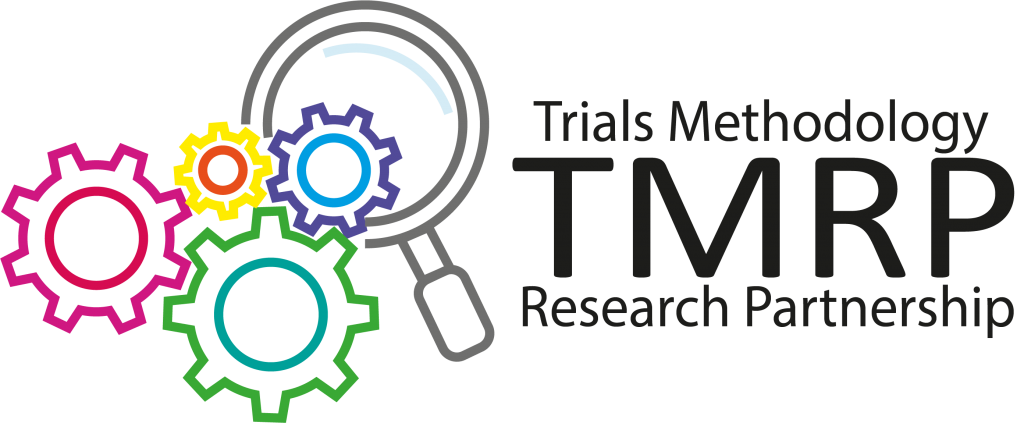The INCLUDE Ethnicity Framework
SCOPE
The INCLUDE Ethnicity Framework aims to help trial teams think specifically about which ethnic groups should be included in their trial for its results to be widely applicable, and what challenges there may be to making this possible. Having identified potential challenges, the trial team can then consider ways to reduce those challenges. For this to work, the Framework needs to be used at the trial design stage before funding is in place. Ethnicity is a complex matter that can influence personal identity and group social relations. The specific ethnic groups that a trial should involve depends on many things, including the geographic location of the trial, and the disease or condition targeted among others.
WHY IS IT IMPORTANT FOR TRIALS TO BE ETHNICALLY DIVERSE?
Trial teams need to do everything possible to make their trial relevant to the people for whom the results are intended to apply (often patients) and those expected to apply them (often healthcare professionals). Ensuring that a trial is designed so that the people in the trial reflect those who might benefit from the results, or be spared harms, is key to the potential benefits of the trial reaching all they should. However, this does not always happen due to narrow eligibility criteria, reliance on recruitment strategies that work only for some, assuming everyone has the same trust in health research, and a perception that some groups are more difficult or costly to recruit. Ethnic minority groups are often under-represented in trials despite being 1 in 8 of the UK population and frequently having most to gain clinically.
The INCLUDE initiative
INCLUDE is an initiative from the UK’s National Institute for Health Research (NIHR) that aims to improve trial delivery for under-served groups. This will improve the applicability of the trial results and be in line with Principle 13 of the Declaration of Helsinki (‘Groups that are underrepresented in medical research should be provided appropriate access to participation in research.’) Read a blog on INCLUDE– The forgotten, the ignored and the under-served – trials cannot continue to fail large parts of society. An article describing how the INCLUDE Ethnicity Framework was developed has been published in the journal Trials. An evaluation of the Framework has been published in Trials too. Finally, our 2022 Trial Forge Guidance 3 gives practical help on how to recruit and retain participants from ethnic minority backgrounds.
Four Key Questions and worksheets
The INCLUDE Socioeconomic Disadvantage Framework has four Key Questions, each of which is intended to prompt trial teams to think about who should be involved as participants, and how to facilitate their involvement as much as possible. These questions should be considered by trial teams in partnership with patient and public partners.
Answering the Key Questions can be tricky. To help with this we have developed some worksheets that give pointers to the sort of things to think about when answering the Questions.
The Key Questions and worksheets can be downloaded from the links below.
The INCLUDE Ethnicity Framework
Key Questions and worksheets
The four Key Questions and the worksheets as a single download.
How to cite: National Institute of Health Research. The INCLUDE Ethnicity Framework, 2020. Available: https://www.trialforge.org/trial-forge-centre/include/ [Accessed [insert date]].
Background
This document provides some background to the INCLUDE Ethnicity Framework, including how we think the Framework should be used.
Appendix 1: Ethnic categories
This appendix summaries the ethnic categories we use with the Framework.
Appendix 2: Who developed the Framework
This document lists the development phases of the INCLUDE Ethnicity Framework and all the people involved.
EXAMPLES
Hopefully though they will make it easier to see how the Framework can help identify potential problems with regard to involving the appropriate ethnic groups in a trial.
We would be delighted to add your examples to this list, or receive comments on the ones already listed. Contact us at info@trialforge.org.
The full list of examples
Currently we have 23 examples:
- By Band Sleeve (bariatric surgery)
- PROSPER (breast cancer)
- SCOT (colorectal cancer)
- PROTECT (prostate cancer)
- STAR-TREK (rectal cancer)
- REACH-HF (cardiovascular; cardiac rehab)
- PRINCIPAL (COVID-19 treatment)
- RECOVERY (COVID-19 treatment)
- COVAC 1 (COVID-19 vaccine)
- REPOSE (type 1 diabetes)
- PROPELS (type 2 diabetes)
- TriMaster (type 2 diabetes)
- LONG LIMB (type 2 diabetes and obesity)
- CLARITY (diabetic retinopathy)
- WILL (maternal health)
- ANTLER (mental health)
- PANDA (mental health)
- Prodigy (mental health)
- IMPACT (mental health; psychosis)
- REMEDY (mental health; psychosis)
- WHELD (mental health; dementia)
- iQuaD (periodontal disease prevention)
- Smoking relapse prevention
The underlined trials also have recommendations on what the trial team could have done regarding the proportion of people from different ethnic groups from the STRIDE panel.
PROSPER (breast cancer)
PROSPER is a UK study examining the impact of exercise in patients with breast cancer.
Download the completed Framework example
Download the STRIDE panel’s recommendations for the trial team
PROTECT (prostate cancer)
PROTECT is a UK trial evaluating the effectiveness of treatment for clinically localised prostate cancer.
Download the completed Framework example
Download the STRIDE panel’s recommendations for the trial team
REACH-HF (cardiovascular; cardiac rehab)
REACH-HF is a UK trial investigating rehabilitation enablement in chronic heart failure.
Download the completed Framework example
Download the STRIDE panel’s recommendations for the trial team
RECOVERY (COVID-19 treatment)
RECOVERY is a UK platform trial evaluating treatments for COVID-19.
REPOSE (type 1 diabetes)
REPOSE is a UK trial comparing insulin pumps and injections in type 1 diabetes.
Download the completed Framework example
Download the STRIDE panel’s recommendations for the trial team
TriMaster (type 2 diabetes)
TriMaster is a UK type 2 diabetes treatment trial.
CLARITY (diabetic retinopathy)
CLARITY is a UK trial evaluating a potential treatment for diabetic retinopathy
Download the completed Framework example
Download the STRIDE panel’s recommendations for the trial team
ANTLER (mental health)
ANTLER is a UK trial examining the clinical effectiveness and cost-effectiveness of antidepressant medication in preventing relapse in UK primary care.
Download the completed Framework example
Download the STRIDE panel’s recommendations for the trial team
Prodigy (mental health)
Prodigy is a UK trial examining social recovery therapy for young people with emerging severe mental illness.
Download the completed Framework example
Download the STRIDE panel’s recommendations for the trial team
WHELD (mental health; dementia)
WHELD is a UK trial aiming to improve mental health and reduce antipsychotic use in people with dementia in care home.
Download the completed Framework example
Download the STRIDE panel’s recommendations for the trial team
iQuaD (periodontal disease prevention)
iQuaD is a UK community-based periodontal disease prevention trial.
By Band Sleeve (bariatric surgery)
By Band Sleeve is a UK trial evaluating three surgical procedures to treat severe and complex obesity.
SCOT (colorectal cancer)
SCOT is a UK trial studying adjuvant chemotherapy in colorectal cancer.
Download the completed Framework example
Download the STRIDE panel’s recommendations for the trial team
STAR-TREK (rectal cancer)
STAR-TREK is a UK trial investigating different treatment impact on saving the rectum in early rectal cancer.
Download the completed Framework example
Download the STRIDE panel’s recommendations for the trial team
PRINCIPLE (COVID-19 treatment)
PRINCIPLE is a UK trial for community-based treatment of COVID-19.
COVAC 1 (COVID-19 vaccine)
COVAC 1 is a UK trial evaluating a potential vaccine for COVID-19.
PROPELS (type 2 diabetes)
PROPELS is a UK trial investigating an intervention to support physical activity in people with pre-diabetes.
Download the completed Framework example
Download the STRIDE panel’s recommendations for the trial team
LONG LIMB (type 2 diabetes and obesity)
LONG LIMB is a UK trial examining the impact on gut hormone changes on improving type 2 diabetes.
Download the completed Framework example
Download the STRIDE panel’s recommendations for the trial team
WILL (maternal health)
WILL is a UK trial examining when to induce labour to limit risk in pregnancy hypertension.
Download the completed Framework example
Download the STRIDE panel’s recommendations for the trial team
PANDA (mental health)
PANDA is a UK trial examining antidepressant treatment with sertraline for adults with depressive symptoms in primary care.
Download the completed Framework example
Download the STRIDE panel’s recommendations for the trial team
REMEDY (mental health; psychosis)
REMEDY is a UK trial examining switching antipsychotic medication to reduce sexual dysfunction in people with psychosis.
Download the completed Framework example
Download the STRIDE panel’s recommendations for the trial team
IMPACT (mental health; psychosis)
IMPACT is a UK trial examining physical health and substance use in psychosis.
Download the completed Framework example
Download the STRIDE panel’s recommendations for the trial team
Smoking relapse prevention
This is a UK trial examining smoking relapse prevention.
Download the completed Framework example
Download the STRIDE panel’s recommendations for the trial team
Insights
Katie Banister (audio: 52s)
Peju Oshisanya (audio: 2 mins 14 s)
Heidi Gardner (audio: 1 min 52s)
SLIDES SETS AND MATERIALS FOR PRESENTATIONS
To follow
To follow
FUNDERS AND OTHERS SIGNPOSTING RESEARCHERS TO INCLUDE AND THE ETHNICITY FRAMEWORK
The National Institute for Health and Care Research (UK)

The Belgian Health Care Knowledge Centre, KCE (Belgium)

The Chief Scientist Office (UK)

The Wellcome Trust (UK)

The NHS Research and Development Forum (UK)

ADDITIONAL RESOURCES
This guidance summarises what an under-served group is, a roadmap suggesting intervention points to improve inclusion, examples of under-served groups and example barriers to inclusion. It also has examples of good practice and other resources to guide teams seeking to engage with, and improve inclusion of, under-served groups in clinical research.
Download general INCLUDE guidanceDownload COVID-19 specific INCLUDE guidance
UK POPULATION BY ETHNICITY
Population data from the 2021 UK census. Data are available for:
COLLABORATORS
This work been a collaboration between Trial Forge, INCLUDE and the following networks and groups.








